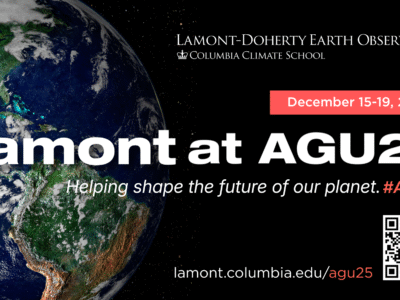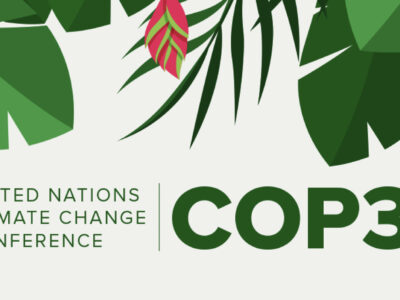Alessandra Giannini, a research scientist at the International Research Institute for Climate and Society, has been awarded a National Science Foundation CAREER award to advance our understanding of climate model projections in the African Sahel, a semi-arid region south of the Sahara Desert that stretches from the Atlantic Ocean to the Red Sea.
The Faculty Early Career Development Program, known as CAREER, is the National Science Foundation’s most prestigious award for junior professors that are exemplary “teacher-scholars” who can integrate education and research within the context of the mission of their organizations.
At the heart of Giannini’s research is a quest to understand why 21st century climate-change projections diverge in the Sahel and other parts of the developing world.
“Anthropogenic climate change is expected to affect less-developed societies with greater severity, yet it’s in the tropics, where these societies are located, that projections of change, especially of changes in regional rainfall, have the greatest uncertainty,” says Giannini.
The global models that the Intergovernmental Panel on Climate Change uses in its assessments are inconsistent for the Sahel. Some of the models project the region to become wetter than it is currently, while others project it to be dryer, she says. “Having a better grasp of the situation is critical, because this region is highly vulnerable to rainfall variability and change.”
In the 1970s and 80s, the Sahel suffered from devastating droughts and famines that killed hundreds of thousands of people and forced hundreds of thousands to migrate elsewhere. Giannini and her colleagues at the National Center for Atmospheric Research and at Texas A&M University conclusively demonstrated that those droughts could have been caused not by deforestation and land-use change, but by changes in global ocean temperatures. They published their results in the journal Science in 2003.
The CAREER award will fund Giannini’s work for five years, and includes support for a doctoral student in climate science. In their research, Giannini and the student will analyze output from global models that diverge in order to try to identify any mechanisms attributable to natural variability, land use change or global warming. They will then look for the ‘fingerprints’ of such mechanisms in actual observations of the Earth’s atmosphere collected by the U.S. Department of Energy’s Atmospheric Radiation Measurement Mobile Facility (AMF) in Niamey, Niger – in the heart of the Sahel. The AMF is a portable laboratory equipped with a suite of instruments designed to collect data on clouds and other components of the atmosphere. Finally, they will test sensitivity in the models’ behavior to such mechanisms with carefully crafted simulations.
Reaching out to the Columbia Community
Giannini’s CAREER award also funds a particularly interesting educational component. She will be working with Columbia’s Institute of African Studies to develop lessons and materials that benefit community organizations and public schools in Harlem, a historically African-American neighborhood near Columbia University with a sizable immigrant population from West African countries such as Senegal and Mali. Her aim is to teach climate-change science to high-school students from an environmental justice perspective, using air pollution as a way to connect local and global issues.
“I applaud Dr. Giannini’s willingness to share knowledge, broaden connections between people and ideas and create opportunities for participatory growth,” says Mamadou Diouf, the director of the Institute of African Studies.
Giannini wants to open up dialogue with immigrant community organizations in Harlem to share perspectives on climate change and its impacts. “Of great interest to me is to understand how they understand and explain drought, which may have ultimately led them to leave their countries. It’s a mutual education – reaching a common understanding can help the IRI build projects in the region so it and its partners can act in the best informed way possible, with local support, to help avert the worst consequences of future change.”
Immigrants routinely contribute to the survival of their communities of origin through remittances. Ultimately, Giannini hopes that scientific knowledge will empower them to learn from the past in order to shape a different future – a future that confronts head-on the same problems of poverty eradication and sustainable development that form the core of the mission of the IRI.



